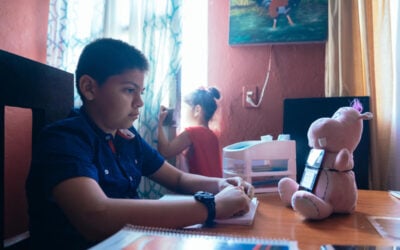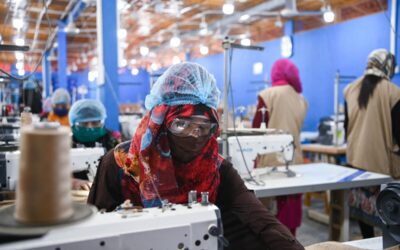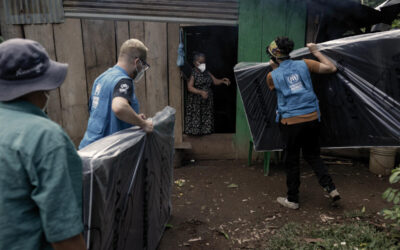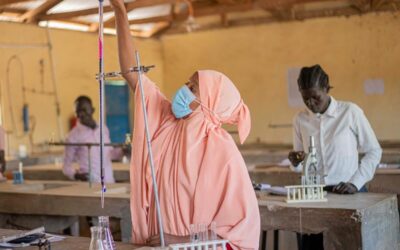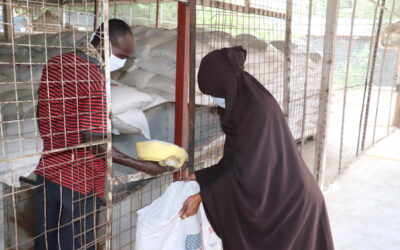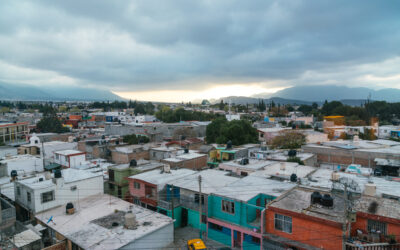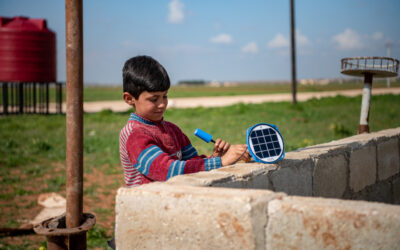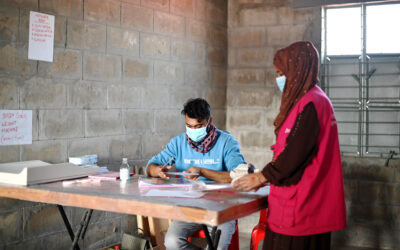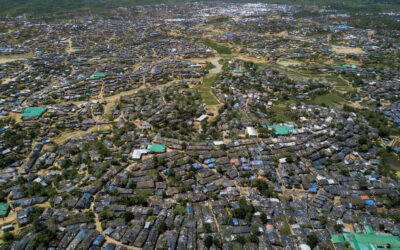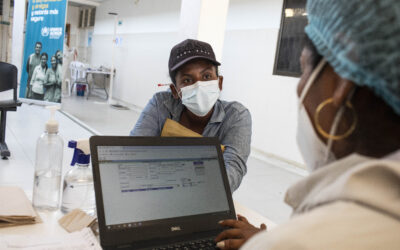Our Latest Articles
Displaced persons in Mexico face heightened insecurity due to COVID-19, with Hondurans and Salvadorans most at risk
The survey shows that displaced Honduran and Salvadoran households are notably worse off in nearly all measures compared to the Venezuelan population and host community, a fact that must be taken into consideration when designing public policies and programmes for these populations.
Rising role of impact evaluations in evidence-based programming for forcibly displaced persons and host communities
A growing body of impact studies are providing rich insights on the effectiveness of interventions in forced displacement settings and ways to undertake rigorous evaluations in these settings.
Nuevos datos de alta frecuencia evidencian el gran impacto de la COVID-19 en los medios de vida y la inseguridad alimentaria en Costa Rica
Los resultados de la encuesta confirman los diagnósticos operacionales y proporcionan evidencia crítica sobre las áreas en las que se debe incrementar el enfoque programático: medios de vida, eliminación de la inseguridad alimentaria y fortalecimiento del acceso a los servicios esenciales.
New high-frequency data highlights COVID-19’s major impact on livelihoods and food insecurity in Costa Rica
High-frequency surveys back up UNHCR’s operational assessment that displaced persons need more support to overcome socioeconomic obstacles while seeking refuge in Costa Rica.
Solutions to forced displacement are incomplete without gender dimensions
Governments, humanitarian actors, local authorities, and development actors must continue to prioritize gender inequality in the myriad displacement and fragile settings to ensure equitable and effective protection responses and inclusive policies.
Rapid phone surveys in Kenya show disproportionately negative impact on refugees
Due to their underlying vulnerabilities, refugees in Kenya are disproportionately more affected by the crisis. They experience higher anxiety related to the risk of COVID-19 infection compared nationals, higher food insecurity, and their employment recovery lag that of the national population.
Annual Statistical Report: Experience from the Americas
The DIMA Statistics team within the Regional Bureau of UNHCR in the Americas applies multiple strategies to improve the data quality of the 2021 Annual Statistical Report submission in line with the United Nations Statistics Quality Assurance Framework and UNHCR’s draft Statistical Quality Assurance Framework, which will be published later in 2022. In this post, we will present and explain these strategies.
UNHCR Must Further Invest in Strengthening its Cooperation with the Development Partners – Independent Evaluation Report
@UNHCR February 16, 2022 - Over the past five years, UNHCR’s engagement in humanitarian-development cooperation has increased with a positive effect on refugees and host communities. To continue to build on the success, UNHCR needs to further adapt its work and...
2021 for UNHCR’s Microdata Library: What did we achieve?
By Andrea Pellandra and Sofia Sacks Ferrari, Global Data Service © UNHCR/Amos Halder: Bangladesh. Rohingya refugees receive health and nutrition support in the health centres in Bhasan Char island. The health, protection, and socio-economic crises caused by COVID-19...
Moving towards better education data for greater inclusion and visibility of refugees
By UNESCO Institute for Statistics (UIS) and UNHCR Kindergarten-age Aden was born on the move. She arrived in Medenine, Tunisia, in 2019 with her parents who fled Darfur in 2003. UNHCR is partnering with the Tunisian Refugee Council (CTR) and the Tunisian Association...
Predicting refugee flows with big data: a new opportunity or a pipe dream?
Big data can greatly improve early warning systems for humanitarian emergencies. But they must include potentially “invisible” populations, protect privacy rights, and be usable in cross-border settings.
Emerging Findings from the Joint Evaluation of the Protection of the Rights of Refugees During the Covid-19
Venezuelan refugees and migrants receive medical attention and COVID-19 tests before entering the Integrated Assistance Centre in Maicao, northern Colombia. © UNHCR The COVID-19 pandemic has exacerbated the pre-existing protection risks for refugees and host...

